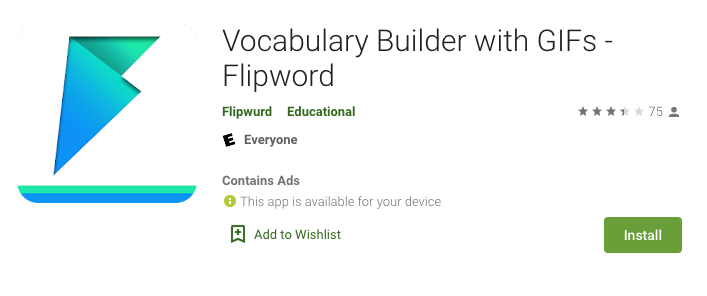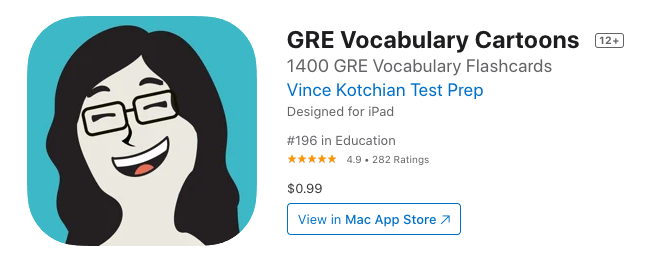-
Posts
9,471 -
Joined
-
Last visited
-
Days Won
38
Content Type
Profiles
Forums
Blogs
Events
Everything posted by Erin
-
Yes, it's very quiet. Especially compared to the heyday of the 2000s! I would like to make a run at reviving things over here; at this stage of my career, it'll be a labor of love. Well, it's actually always been that. But I'd really like to put in a few features to see where things go.
-

Identifying Independent and Dependent Clauses
Erin replied to imslogic's topic in GMAT Sentence Correction
These are great questions. Seriously. There are a lot of different ways to look at your questions; you are asking advanced questions that show a good understanding already of language and how it functions. First off, there are two sets of names for independent vs dependent clauses; a lot of teachers prefer main and subordinate, respectively. I will use those terms while I'm explaining. The first point to wrap your head around is that a clause is a subject and a verb together. If you can understand that, awesome. I had a teacher once who said a clause is a sentence. There's more to it than that, but that's the basic idea--a subject and a verb. Personally, I don't think about this 'complete thought' nonsense because who defines a complete thought? (Is not Yikes! a complete thought?) Next point: main vs subordinate. 'main' just means that that sentence carries more weight in the sentence; the subordinate clause is less important. Here is a summary I use in class: All clauses have at least a subject and verb. Main clause = independent clause Subordinate clause = dependent clause Note the perhaps-subtle differences in these sentences: (You may wish to say them aloud to hear the difference as well.) - I’m tired, but I’ll help you. (Both clauses are main; each clause arguably has the same weight.) - Even though I’m tired, I’ll help you. (The emphasis here is on 'I'll help you' because that's the main clause; this means the speaker sounds kinder with their offer of help. The 'tired' part is subordinated, so it has less weight in the sentence.) - Even though I’ll help you, I’m tired. (In this one, the speaker emphasizes the fact that they're tired because that information appears in the main clause; in this case, the speaker seems less willing to help. The information about the offer of help is subordinated, so it's less important.) Third point: It's important to know that subordinate clauses can be grouped by function--noun clause, adjective clause (also called a relative clause), and adverb clause. This basically means that each clause can function as a noun, adjective, or adverb, respectively. Quick examples: 1. Noun clause: [That you are hungry] is apparent. 2. Adjective clause: I saw the movie [that you recommended]. 3. Adverb clause: I will help you [when I get home]. A quick trick is to plug in a noun, adjective, or adverb into the sentences to see how each functions grammatically; for example: 1. Your hunger is apparent. 2. I saw the recommended movie. 3. I will help you later. These sentences sound different from the versions with clauses instead of phrases, but they help show how the clauses function in the sentences. Does this help shed some light? I could write more on the matter, but I'm trying to keep it as concise as I can! -
Welcome to the 2023 Ph.D. in Business concentration sweat thread! This is a thread for applicants (hopefully!) starting their PhD program in 2023! Use this is vent, discuss any frustrations, or random musings that you would like others to weigh in on! Best of luck to this year's applicants! For those of you just starting to browse this website, check out the Welcome to the Forum thread for information that has been helpful in the past.
-
Please let us know it's going, and hang in there!
-
That's quite the ordeal. Sounds like a horrible experience. ETS might allow you a retake, but I don't think they'll give you a partial refund. For what it's worth, your English in this post is quite advanced. Hopefully that will come through in your scores. Good luck!
-
The present perfect verb tense is one of the most used verb tenses in English, but also sometimes the most confusing. In its basic form, it is used to talk about actions that have already been completed with some sort of connection with the present. For example, "I have eaten breakfast" can be used to say that you have finished eating breakfast, but you finished recently. The present perfect tense is made up of two parts: the present tense of the verb "to have" (I have, you have, she/he/it has, etc.) and the past participle of the main verb (eaten, gone, seen, etc.). Here are some more examples of the present perfect verb tense: I have finished my homework. You have cleaned your room. She has washed the car. The present perfect verb tense is often used with time expressions such as already, just, and yet. I have already eaten breakfast. You have just cleaned your room. She has not washed the car yet. The present perfect verb tense can also be used to talk about actions that happened in the past but are still relevant today. For example, "I have seen that movie three times." This basically means that you have seen the movie three times in the past, but it's still possible that you will see it more often.
-
I get this question from students regularly. What usually happens is a student gets a letter asking them to join the National Society of High School Scholars (NSHSS). (But even if you don't get a letter, you can still join!) Some of them are really excited about being nominated, while others are rightfully more skeptical. The acronym sounds close to the National Honor Society (NHS), so maybe there's some confusion on the part of the student. So students wonder whether they should pay $75 for a lifetime membership at NSHHS. The National Society of High School Scholars is not a prestigious organization and will not help with college admissions. It sends out thousands of these letters every year, and fortunately for them, a high enough percentage of students join. According to their own web page, they accept anyone who meets any single one of the following criteria (retrieved 2022-07-26): 3.5 GPA or better 1280 SAT or 1150 PSAT or higher (about the 85 percentile) A 4 or better on any single AP exam 26 or higher on the ACT Combined IB test scores of 36 or higher IGCSE grade A or better In the top 10% of the class If you visit the BBB page for the NSHSS, you will find many (over 100 total) complaints like this: Many of the complainers state that they thought the invitation was from the NHS (National Honor Society) because they didn't read carefully. The good news is that NSHSS appears to refund fees to those who request it. So good on them for that. Importantly, the NSHSS is NOT a non-profit, even though their website is hosted on a .org domain. Anyone can get a .org, just so you know. It's the .edu, .gov, etc. domains that actually mean something. They are not registered as a 501(c)(3) non-profit; rather, they are a 'Domestic Profit Corporation' (according to Georgia's business registration website), just like most large companies you know. Bottom line--NSHSS will most certainly not help you get into college any more than being the leader of your Fortnite team for three years would. If anything, the readers might take a little pity on you for joining. But you're free to join if you want to and $75 seems worth it; there are some benefits listed, like events and some networking and possible scholarships, though to be fair, you can find much of the same for free online and through your school.
-
In a 4 to 3 vote on June 21, 2022, Lowell High School (in San Francisco) decided to scrap its experiment with lottery-based admissions and return to merit-based admissions. Who this applies to: If you're in 8th grade in the fall of 2022, and you want to apply to Lowell High School, and you intend to start in the fall of 2023, you will apply merit-based. What admissions will exactly look like: I have not found official confirmation from SFUSD of what the admissions process will entail, but it will likely be similar to the previous system (SBAC test, GPA, extra activities, Lowell essay, and a few other factors). See the Lowell HS application timeline post that I wrote for more information. Image for attention:
-
I'm working on an article about applying to Lowell High School (in San Francisco), and I'm gathering information about the process. I've worked with a lot of students applying to Lowell for a couple of decades, so if you have any questions, let me know. If you're not familiar with SFUSD high school applications, then it's important to note that you don't apply directly to Lowell per se; you apply to all SFUSD high schools at the same time and indicate Lowell as one of your choices. If you're following the news, Lowell is abandoning the lottery system that was in place for two years, so they're back to merit-based admission. I also have information about the 'band' system that Lowell uses, which I can post if anyone thinks it will help. Lowell admissions timeline for students in 8th grade in the fall of 2022, applying to start in the fall of 2023 October 22, 2022: SFUSD high school applications available (including for Lowell High School). December 16, 2022, 3:00 PM (PST): Applications due. January 7, 2023 (Saturday), 8:30 AM or Jan 11, 2023 (Wednesday), 6:00 PM: Lowell admission test. January 2023 (throughout the month) (for Bands 2 and 3): Students will write the Lowell admission essay at their school. March 20-24, 2023: High school admissions decisions sent. April 7, 2023: Deadline to decide on assignment offer. 2023 fall: Start 9th grade at Lowell!
-
Try to make your name match your other documents, such as your passport. So your name is something like: Given name: Erica-Fulano-Y- Family name: Sun Is that correct?
-
This looks like a reply just to get the URL to a target site. I will ban this account.
-
It's been a long time since I've dealt with this sort of thing, but yes, all names need to match everywhere. If they don't match up, any number of organizations could reject you, since they may not be able to confirm your identity.
-

Europe/international - Econ/Public policy/International Finance
Erin replied to kevin j's topic in Graduate Admissions
Kevin, your story is not dissimilar to mine (BA in English, traveled outside of the US for about four years). I think I understand where you might be coming from--perhaps looking for a way to make a solid contribution to the world and having some educational credentials to help. Problem is, many master's programs, especially the competitive ones, will want someone who is a safe bet, someone with a track record of doing what they're interested in and who has a clear vision of where he wants to be after graduating. I know many universities do allow you to construct your own major of sorts, so you may want to seek those out. One potential problem with those is that you may find it hard to find employment, even with a master's degree. I do know a guy who did a PhD in social economics, which fits a lot of what you describe. For study outside of the US, you should look into the costs; they may be much lower than what you'd pay in the US. Oh, you probably know this already, but it's harder to get funding for a master's degree than for a PhD. -
Hmm... Reviews don't look all that great. Less than 3.5 stars. =/ I haven't tried this GRE vocabulary app (iOS; free) - Android for $0.99, but it looks good, and I know Vince, and I know he's obsessive about GRE prep.
- 6 replies
-
- flashcards
- gre
-
(and 3 more)
Tagged with:
-
No problem at all, mnbvbnm. 😊
-
I could use a couple of moderators for this forum, if you'd like to volunteer, please message me. If there are a lot of people who are interested, I may use a form. I prefer to consider members who've been around a while (a year or more?) and are involved in economics somehow. Reminder--this is a free forum, and is sort of a side project for me. (So no revenue here. If I ever get to the point where I could monetize the site in an unobtrusive way, I would then be able to offer some sort of compensation.) I do have a bit of an interview process, which involves actually meeting in real time. Why? The main thing is that I just don't want random people moderating since there's private information shared here. Thank you!
-
A little early, but here you go, your thread to discuss, hand-wring, share insight, and dream about saving the world.
-
Haha. I can create it. I think we could use a couple extra moderators here, by the way.
-
I know a lot of people will give you a hard time for writing this yourself, but they'd probably be surprised by how many people have told me that when they ask for a letter of recommendation, they're asked to write it first for the recommender and then the recommender will sign it. Most of the students of this group have been applicants to business school in the US, and they need an LoR from their boss. But I've heard the same from other students who ask their teachers to write one. That said, here are my thoughts: I would start by giving context of how you know the student: S was a student in my XYZ class in DATE, etc. 'I will never forget how S solved a security problem in a poll application using bar security as an analogy.' doesn't ring true for me; doesn't sound like what someone would say about another person. In ¶2, I feel like there needs to be more insight into the intellect of S, not just general assessments of her earnestness or intelligence. I'm not sure what that would entail for security, but for teaching and education, I'd want to read something like this: S has demonstrated a finely developed sense of empathy for each student and readily adapts herself to each student, which I attribute to her background as a bicultural, bilingual child of immigrants raised in the projects of San Francisco. Reading the rest, I feel the same--it's a little bit too general ('He's a smart guy, has good ideas, and works hard! You should admit him!); there are thousands of extremely capable and prepared applicants for every spot in higher education. This letter really needs to drive the point home that S is uniquely qualified. For example, I would suggest possibly adding some kind of ranking (eg, 'one of the top five students I've had) or something unique ('I found S so eager to learn that I started mentoring him in some of the more advanced areas.') One more tip--I'm not sure of the program you're applying to, but competitive ones will want to see a good match on other dimensions--the LoR should mention other areas that set you apart as well. Did you have a unique project? An interesting background? Have you overcome any challenges to achieve anything in college? I should mention that I have written letters of recommendation for employees and students, but I wouldn't consider myself a professional. It would be best to get the opinion of someone who actually reads letters of recommendation.
-
So you're saying sponge (the animal) is a countable noun whereas sponge (the material or substance) is an uncountable noun? If so, I agree with you.
-

Can someone kindly evaluate my Argument Task? (Paleo Diet)
Erin replied to Rose Mary's topic in GRE Analysis of an Argument
First, I took some quick notes of what I think are some of the logical flaws. I'll paste these here; maybe they'll help someone. The main flaw of this argument, and probably many Analyses of an argument, is that it simplifies an exceedingly complex subject (nutrition science). Now, let's take a look at your writing. ¶1: I would suggest stating some of the flaws rather than summarizing the goal of the paragraph. Ie, this sentence: The author of the passage seems keen to present Paleo diets as having been developed through sacred wisdom of our forefathers and as a sure shot remedy for many diseases. doesn't really pull its own weight. ¶2: Small thing, but your writing is really good, so I'm sort of reaching for straws here: This implies--for academic writing I think that often the word this should be followed by the noun it refers to. In other words, make the pronoun referent explicit (rather than implied). I assume you mean something like This predictable and established adaptation. ¶3: Missing word, missing period, and one suggestion: But that is ignored by the author, hastily proceeds to commend the ancient knowledge of our ancestors and conclude that it is a cure for many chronic illnesses > But that shortcoming is ignored by the author, who hastily proceeds to commend the ancient knowledge of our ancestors and conclude that it is a cure for many chronic illnesses. Also, I'm not sure we can call the practices of our ancestors 'knowledge', as they may have simply acted based on what was available to them, not necessarily on some sort of wisdom built up over generations. ¶4: I would like to see this argument presented in a bit more detail--just state why replicating their diet may not work. Eg, our bodies are different now, the foods aren't really the same, either, there are toxins in the environment, etc. Here I might also mention that our early ancestors may not have actually had long life spans, so there may be very little that we'd want to replicate from their lifestyles. Overall, strong writing and analysis. -
@April M Which part of the TOEFL gets harder for you over time? Do you have to take the iBT version of the TOEFL? From your post, it appears you're living and working in the US, so you should have a lot of practice with English by now. Just curious about what it's like as a non-native speaker of English living in the US.
-
So the game was rigged? We'll never know, will we? Wow, @Vaya posted that almost 20 years ago. Crazy. I still remember her. Good kid, LOL.
-
This is the essay that was posted: I OCR'd the essay to make it easier to read and give feedback on: @brcewolffFirst, the good news: You show a pretty high level of ability in writing in most parts of your essay! You have a lot of complex sentences and strong reasoning. To improve: The #1 thing is that this essay is a bit off-topic. You're basically writing about the quality/rigor of education available to students in the US, not the actual curriculum. This essay prompt asks you whether every student in the US should study exactly the same material for their entire education. For example, every ninth grader would start English class by reading, say Huckleberry Finn, not a novel of the teacher's choosing or some other topic. And every high school graduate will have taken the same mixture of math, history, science, PE, etc. throughout their school years. Second, please try to pay attention to common English punctuation conventions. Your readability isn't really affected, but not capitalizing proper nouns (eg, united states) isn't a good look for an important essay. Another related example--you wrote The swiss, the Netherlands, Japan, and China. First of course, you need to uppercase Swiss. Second, you should list these nationalities using the same part of speech (ie, make them parallel), so you could either say The Swiss, Dutch, Japanese, and Chinese or Switzerland, the Netherlands, Japan, and China. A couple more grammar/punctuation areas to focus on: college. private => college. Private. Be sure to uppercase the first letter of a sentence. Schools that are private, do not need to rely on the money of taxpayers. => Change Schools that are private to Private schools. Get rid of the comma after private (no comma between the subject and verb for this construction). Consider shortening money of taxpayers to taxpayers' money or even just taxes. There are a few more errors as well, but hopefully you get the idea. Not sure whether Grammarly would pick up all the errors; I plugged the writing into a couple of online grammar checkers (Grammarly and Prowritingaid), and they didn't get even some of the most obvious ones. Also, you should write this essay without your personal experience; cite instead common information (even though you won't have access to research tools while writing for the GRE). Final observation: You've basically written a persuasive essay here, not an expository one. Be sure to know the differences! You need to write in a more neutral, analytical way, as if you were analyzing all the evidence and presenting a conclusion or recommendation.
- 3 replies
-
- gre
- analytical writing
-
(and 2 more)
Tagged with:










